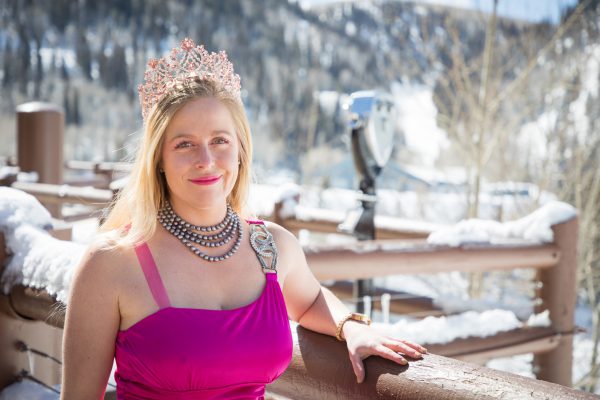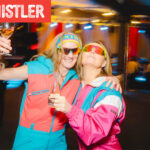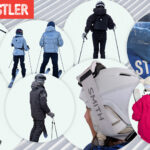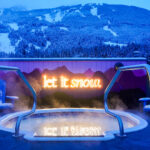The first female to land a double flip at the X Games and to flip off a rail in ski competition, American pro skier Jamie Crane-Mauzy, a.k.a. Jamie MoCrazy, has had to learn the hard way how to climb her “alternative peak.” After a life-changing crash at the 2015 World Tour Final in Whistler that caused her brain injury, coma and right-side paralysis, she now finds purpose inspiring others to find the resilience and passion needed to create their new life after trauma through MoCrazy Strong, the non-profit launched by her supportive family. We caught up with her to see how she’s doing.

Ski Canada: Your moving speech at the Multiplicity event at the last Whistler Ski & Snowboard Festival was quite a wake-up call for many facing challenges. Can you tell us more about what you’ve gone through?
Jamie MoCrazy: I’m forever grateful to the Whistler community for saving me. I honestly don’t remember much past a day before the accident. I don’t remember when I crashed at the World Tour Finals, or when my brain was bleeding in eight spots. It looked like I would not make it and my fatality report was being written. There was damage to my brain, which caused paralysis on my right side. I also don’t remember when I became the first person in North America to receive the oxygen and pressure analyzing brain bolt with Dr. Mypinder Sekhon at the Vancouver General Hospital. My dad had to make that risky decision on the spot and I’m so grateful he did. As a former high-performance athlete and space cadet, I do find humour in the fact that I’m now a medically certified airhead [laughs].
Over my very long recovery journey, when my memory did come back, I knew my life had changed. I was now Jamie 2.0, everything I knew before it was gone. I had to relearn everything—every single motor skill. When I finally went back to skiing, I had to relearn how to ski; which meant every single freestyle trick I could easily do before, I had to relearn. Trouble is, when you’re relearning as a professional athlete, you fall a lot, which is damaging after all the rehab we did, so I decided to step away from competing.
SC: That must have been a hard realization, since your whole life was changing before your eyes?
JMC: I became more and more depressed. There were mornings when my sister Jeanee (who is still competing professionally as a halfpipe skier) would go off training, and my mom would go to work as a ski instructor, and I would lie in bed and wonder, why should I even get up? I had no goals. This was one of the reasons I went back to university to start pursuing new dreams and work on my mental health. [Jamie studies neuroscience at Harvard and works as a competitive coach at Park City Mountain Resort.]
Two major things that we teach in our MoCrazy Strong Method are setting attainable goals and then reaching small growth goals. When I was planning my skiing career, I wanted to make it to the X Games. So my attainable goal was climbing the ramp at the Olympic Training Park and doing hundreds of backflips into the water over and over again, ticking off those goals that I could control. After my accident, I had to set attainable goals to ski while I was still just trying to walk upstairs with some support. I went from someone whose personal best was breaking freestyle skiing boundaries, to my new personal best which was struggling to hold a glass and drink water in my non-dominant hand.
My mom was instrumental in my recovery, never allowing me to quit and spending hours every day on my rehab. Realizing that everybody is climbing a different mountain of life is key; quite often people get stuck in metaphorical avalanches. They then have two choices: lament and blame all their deficits on what happened and just stay stuck at the bottom, or start to climb an alternative peak.
SC: Looking at the view ahead from that peak, what are you most looking forward to?
JMC: So much. I’m getting married to my best friend, Reggie, in Whistler in the spring of 2022. We’re inviting those who know about my story to attend the Friday-night cocktail before the wedding as a thank you. Reggie proposed to me while hiking on what we now call my Live to Thrive Day, April 11, 2021, which meant so much. I knew we wanted to get married in the mountains and it seems fitting to go back to Whistler, like a rebirth.
My sister is writing a book about this entire incident/ family journey, and we are hoping that it will get turned into a major film and a documentary. I continue to speak at live events as a motivational speaker and to the medical community as well. My family and I are working for the MoCrazy Foundation and also sit on the Brain Injury Alliance of Utah Board. You can find many links and videos to help Heal the Healers, those caregivers thrust into that hard role in the blink of an eye.



